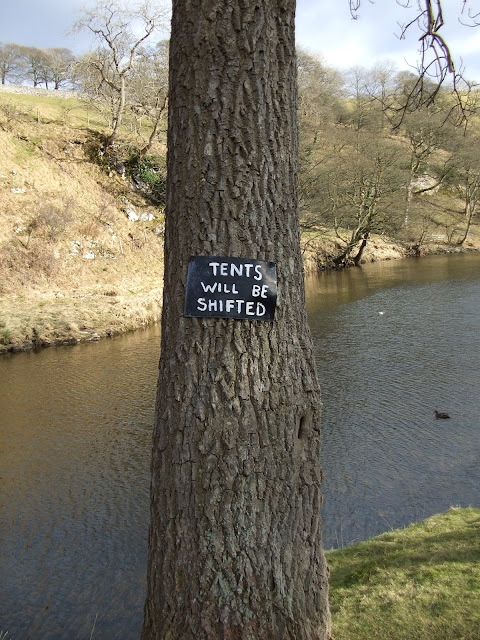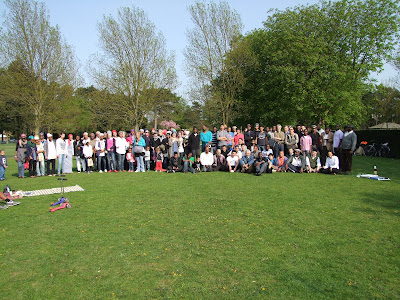The Labour candidate Sarah champion romped home in first
place in Rotherham, increasing the Labour share of the vote by 1.62% since the 2010 General
Election, despite the disgrace of the former MP Denis MacShane, the Muslim
grooming scandal and most recently the furore surrounding the local social
services’ decision to remove three foster children from a couple simply because
they were members of UKIP. UKIP nonetheless did manage to provide their best
ever performance in an election for a Westminster seat, coming second and
securing 21.79% of the vote, up 15.87% since 2010. It thus seems that Nigel
Farage’s assertion during the count that UKIP were running “a close second” was
the product of a liberal dose of wishful thinking. Still, the fostering scandal
does appear to have imparted a significant boost to UKIP in the seat, but this
marks their likely high watermark in Rotherham, given that the party represents
the Atlanticist Thatcherite wing of the Conservative Party in exile, and
Rotherham is most certainly not natural Tory territory.
The Conservatives polled a miserable fifth place, taking
only 5.42% of the vote, down from 16.7% in 2010 when they were the second party
in the seat. This switch of allegiance appears to underscore the recent fears
voiced by a number of Conservative MPs with respect to the potential for a
stronger UKIP to dent their vote in many marginal seats and thereby let Labour
win, prompting calls for an ‘electoral pact’ involving the promise of an EU
referendum that Nigel Farage has declined to entertain.
However, if last night’s result in Rotherham was adjudged to
be a bad one for the senior partner in the Coalition Government, it was a
catastrophic one for the Liberal Democrats, who were pushed into eighth place
in Rotherham, taking only 2.11% of the vote, down from 16% in 2010 when they
came third. This meltdown in the party’s support was paralleled in yesterday’s
two other by-elections, most notably in Croydon North where they came fourth with
3.5% of the vote compared to the 14% and third place that they secured in 2010,
and in Middlesbrough, where although they came third, their share slumped from
19.9% to 9.9%. Just how ‘sorry’ must Nick Clegg be feeling now? Following on
from the three dire results in the crop of parliamentary by-elections earlier this month the Liberal Democrats are currently set firmly on course for
electoral annihilation at the next General Election. What, if anything, could
the Liberal Democrats do to reverse this precipitous decline in their fortunes?
Having noted the electoral failure of the two parties of
government in Rotherham, who benefited other than UKIP? Although the BNP took
third place with 8.46% of the vote, this was down from 10.4% in 2010, with this
respectable placing in the table being to a considerable extent attributable to
the visibility and relative popularity of local candidate Marlene Guest. She
certainly fared better than fellow BNP political hopeful Peter Foreman who
stood in Middlesbrough, who took only 1.9% of the vote, compared to the party’s
5.8% in 2010. The fall in the BNP’s share displayed in Middlesbrough is more
typical of the results achieved by the BNP over the past couple of years, which
has seen the party in headlong decline. It is not an exaggeration to state that
the BNP is on a terminal trajectory, having lost most of its membership as well
as the majority of its more competent organisers.
Coming in fourth place behind the BNP was Muslim convert and
apparent Stockholm Syndrome sufferer Yvonne Ridley who stood for Respect and
took an 8.34% share. This was the first time that the party had stood in
Rotherham, and the share of the vote obtained suggests that Respect bagged the
Muslim bloc vote in the borough and little else, for it is said that the
original Labour candidate mooted for the by-election had been a Muslim, but
following the recent Muslim paedophile grooming scandal in the borough, Labour
had decided that it would be impolitic to field a Muslim. According to the UK Polling Report blog, Rotherham’s Muslim population stood at 5.4% in 2001, and
it has certainly increased since then and would thus easily have been able to
furnish Respect with the share of the vote that it obtained. Respect also
fielded a reasonably high-profile candidate in Croydon North – Lee Jasper – a
former confederate of Ken Livingstone and Director for Policing and Equalities
for the GLA in 2004-2008. However, this professional race hustler managed to
secure only sixth place with a 2.9% share of the vote, this poor showing most
likely being a reflection of the fact that Croydon North is not natural Respect
territory (i.e. it does not possess a large Muslim population that can be
electorally mobilised) and allegations of cronyism have also previously been levelled
against Jasper.
The turnout in Rotherham was low, a mere 33.89% compared to
59% in 2010. Likewise, the turnouts in Middlesbrough and Croydon North were
poor: 26% and 26.53% respectively. So, although these by-elections each
provided Labour with a secure victory, the imaginations of voters were
certainly not set aflame; they do not seem to have kindled any real enthusiasm.
Ed Miliband must be hoping that his party can continue to ride the wave not so
much of popularity, but of disillusion with the Condem Government, until May
2015. However, it is striking that he and leading Labour light Ed Balls were
cabinet members in the last Labour Government, the administration that helped
to plunge us so deeply into the economic, social and constitutional mess that
we currently find ourselves. Automatic tribal party loyalty evidently played the greatest role in ensuring that Labour won by a large margin in all three seats, and it is this sort of loyalty that has thus far militated against the emergence of any new electorally successful parliamentary parties in England in recent decades. If real political change is to be brought about, this species of party tribalism - particularly of the Labour variety - needs to be challenged and broken down.
UKIP will soar no higher in Rotherham, for its globalist
Thatcherite economic policies preclude a wide appeal to the electorate, and
this observation applies to the country at large. UKIP did also manage to take
second place in Middlesbrough with 11.8% of the vote, up from 3.7% in 2010, and
third place in Croydon North with its share increasing from 1.7% in 2010 to
5.7%, but what these results suggest is in line with national opinion polls
that have recently seen UKIP vying for the position of third party with the
Liberal Democrats. What was witnessed yesterday therefore, may lead Nigel
Farage to issue a call akin to David Steel’s infamous “Go back to your
constituencies and prepare for government!” but in reality, this will most
likely amount to “Go back to your constituencies and prepare to take third or
fourth place in a few Westminster seats in the West Country in 2015!” Yes, we
do need to leave the EU, but UKIP is a single-issue exiled rump of the Conservative
Party, and exiting the EU is not at the top of the average voter’s list of
policy priorities. What we require is a new non-globalist party capable of
breaking through in seats such as Rotherham, which whilst including departure
from the EU as a policy pledge, concentrates instead on the matters of greatest
concern to the electorate: the economy, health, education, transport, law and
order and immigration.
UKIP's Rotherham Candidate: Jane Collins












